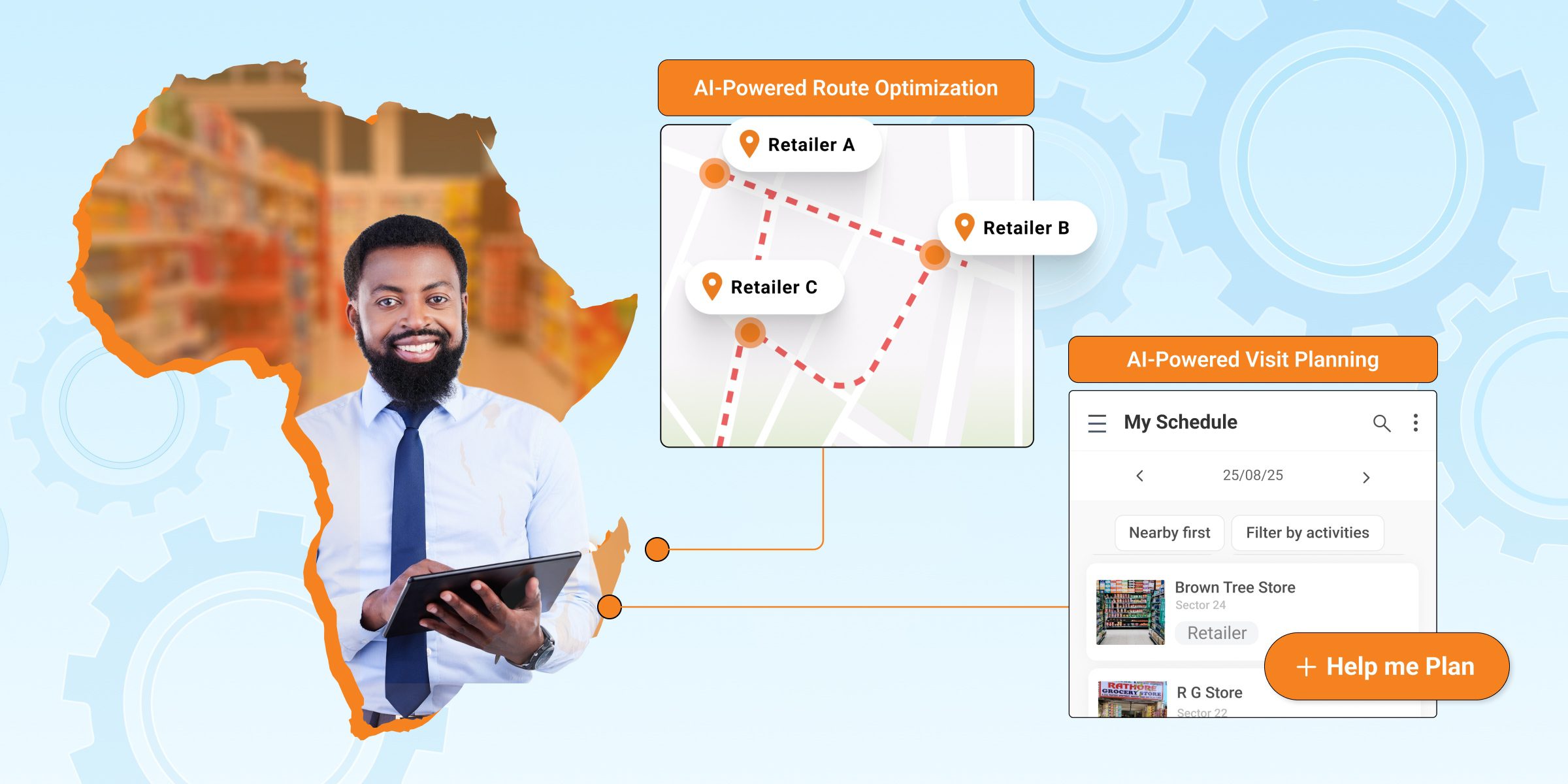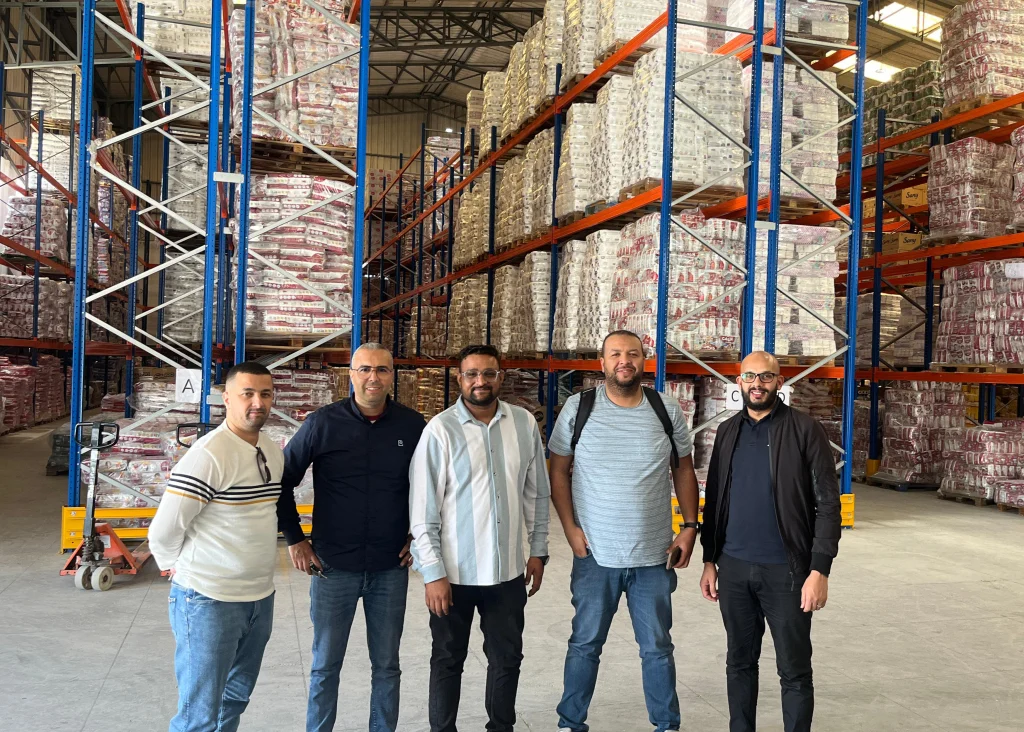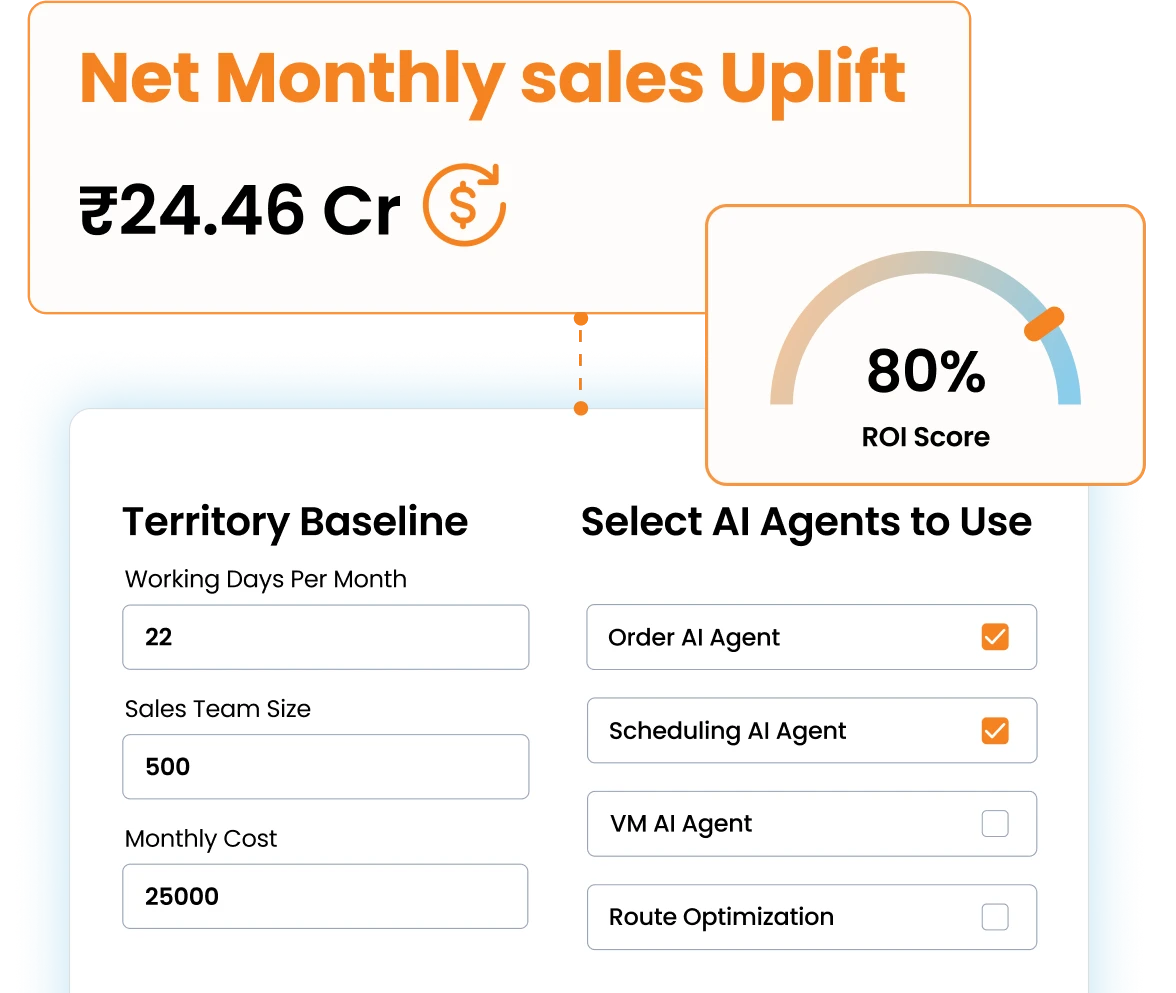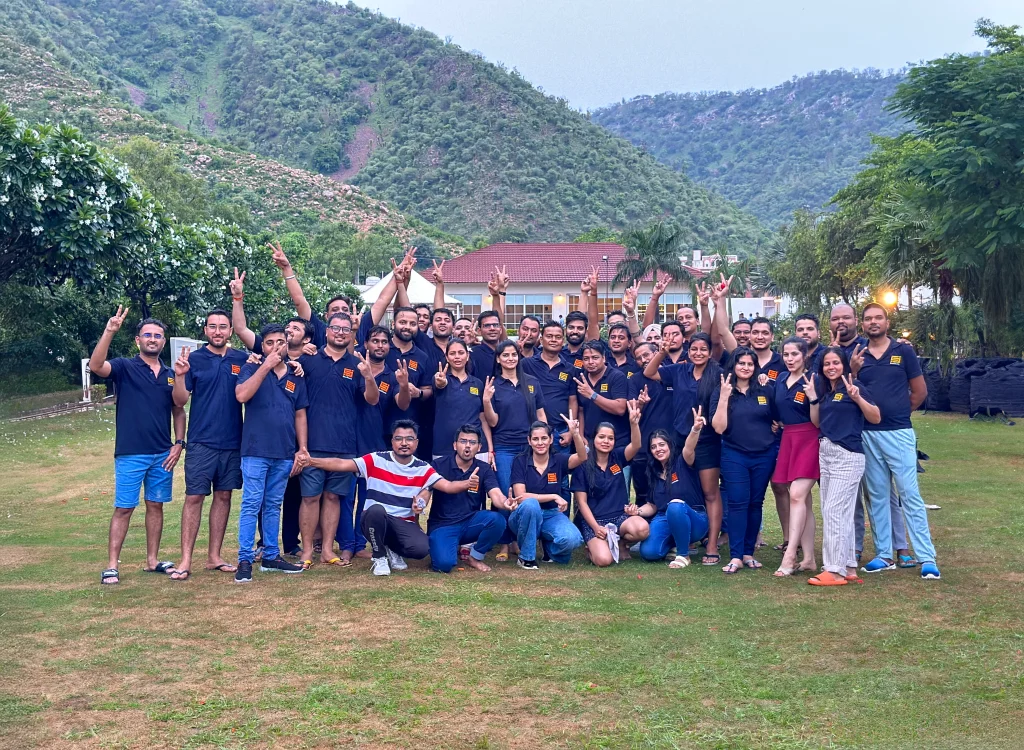AI in FMCG Africa: Emerging Trends for 2025

En PRODUCTOS DE GRAN CONSUMO retail landscape in Nigeria is experiencing a digital revolution—driven by artificial intelligence (AI) across supply chain, sales automation, and retail analytics. With rapid urbanization, a growing population, and a tech-hungry youth, the Nigerian FMCG sector is uniquely positioned to benefit from AI-driven demand forecasting, smart Field force management, and AI-powered route optimization.
While slow adoption of AI can hinder business growth and expansion into new markets, emerging AI are still making a significant impact. They are helping the industry work more smoothly, improving supply chain processes, and making communication easier.
Innovations in AI and FMCG in Africa are leading to smoother operations, cost savings, and the ability for brands to meet increasing consumer demand.
The need to adopt these AI advancements is, therefore, not an option but a mandate.
¿Por qué? Porque si espera que su marca despegue en África, necesita contar con operaciones eficientes de distribución minorista. Esto solo es posible mediante la adopción de la tecnología adecuada, en la que sus esfuerzos sobre el terreno se vean reforzados por la digitalización.
AI in FMCG is crucial for long-term business growth. In this article, we’ll show how you, as an African brand, can leverage emerging AI trends in 2025 to unlock your full potential and achieve exceptional sales outcomes.
Limitaciones de los procesos manuales
Los métodos tradicionales eran eficaces cuando todo el mundo lo hacía. Hoy en día, con la llegada de la tecnología avanzada de distribución minorista, ceñirse exclusivamente a los métodos tradicionales en sus operaciones de ruta al mercado podría suponer un desastre para su cuenta de resultados.
A continuación se exponen algunas de las limitaciones significativas de la distribución tradicional:
- Visibilidad y conocimientos limitados: There is zero access to real-time data to improve stock management and sales performance, or understand market demand.
- Mayores costes operativos: Los procesos manuales aumentan los gastos y la ineficacia, lo que repercute en la rentabilidad.
- Más errores humanos: La dependencia de la introducción manual de datos/notas/trabajo conduce a una toma de decisiones mal informada y a la incapacidad de elaborar estrategias eficaces.
- Problemas de escala: Los sistemas tradicionales no están preparados para adaptarse a la evolución de las empresas y los mercados, por lo que requieren una revisión completa para cumplir los nuevos requisitos.
- Rutas ineficaces: Una mala planificación de rutas derivada de esfuerzos intuitivos y manuales se traduce en una pérdida de tiempo, mayores costes y una cobertura significativamente reducida.
- Responsabilidad limitada de los equipos de ventas: Sin una herramienta digital que permita hacer un seguimiento preciso de los comerciales y sus actividades, las oportunidades perdidas y los descensos de productividad son habituales.
Role of AI In Reshaping FMCG Retail Distribution in Africa
AI and automation are becoming more and more crucial to African FMCG retail distribution companies in countries like Nigeria, Kenya, Ghana, Zimbabwe, Tanzania, Zambia and South Africa. They help brands streamline retail sales automation and optimize distribution operations for greater efficiency.

But while many regions see brands adopting AI in FMCG, areas in West Africa like Nigeria and Ghana are still in the early stages embracing AI for FMCG operations. There is a huge growth opportunity in this region for brands to speed up their digital adoption and streamline their RTM operations for more market share.
Pero, ¿cómo aprovechar estas plataformas digitales y transformar su marca en los mercados africanos?
For starters, AI offers data-driven solutions to brands in Africa to address inefficiencies in the ruta al mercado. Real-time auditorías minoristas provide unparalleled visibility into inventory, sales, and customer behavior, and the consequent ability to make informed decisions with such information. AI can help optimize everything from creating better visit plans to pitching the right SKUs to your retailers, enabling you to stay ahead of the competition.
Al mismo tiempo, con el aumento de la penetración de la telefonía móvil y la mejora de los servicios de Internet en toda África, la adopción de la tecnología está mejorando, lo que conduce a una distribución minorista de bienes de consumo más eficaz en África.
Tendencias tecnológicas en ventas
- Optimización de rutas
Optimización de rutas La optimización de rutas consiste en dividir un territorio en varias rutas. Las tiendas de cada una de estas rutas están relativamente cerca unas de otras, lo que garantiza que un comercial pueda completar su ronda con éxito, ahorrando costes de transporte innecesarios y aumentando las ventas.

- AI-driven Planificación de visitas
Esto permite a los equipos de ventas planificar y ejecutar sus visitas con gran precisión. Estas herramientas le ayudan a identificar las visitas más eficaces en función de factores como las oportunidades de venta, los pagos, las reclamaciones y la tendencia de las visitas, mejorando la productividad de los representantes de ventas para obtener el máximo impacto, al tiempo que se optimiza la asignación de recursos. Esto se traduce en una mejor disponibilidad de los productos, mantenimiento de las existencias y relaciones marca-cliente.
Sistema de gestión de distribuidores
A fiable sistema de gestión de distribuidores agiliza la gestión de existencias, el conocimiento de los productos, la gestión de reclamaciones, etc. Esto contribuye a agilizar el movimiento de los productos a lo largo de la ruta hasta el mercado, lo que aumenta la productividad de las ventas.

Un buen SGD se centra tanto en las ventas primarias como en las secundarias. Garantiza una colaboración sin fisuras entre marcas y distribuidores, lo que se traduce en una sólida gestión de las existencias y de las ventas primarias y la realización de pedidos. Esto, a su vez, minimiza los retrasos en las ventas secundarias y refuerza la relación entre distribuidores y minoristas. Así, mientras que los distribuidores pueden realizar sus propios pedidos y obtener transparencia (planes, recompensas) en las ventas primarias, las marcas tienen una idea completa de lo que ocurre en las ventas secundarias.
Automatización de la fuerza de ventas
Automatización de la fuerza de ventas (SFA)technology digitises routine tasks like order taking, attendance monitoring, sales performance analysis, etc. With this in place, brands benefit from enhanced sales team productivity and a well-rounded understanding of what’s working or not at the ground level to course correct in time. This leads to greater customer trust for your brand and stronger customer-brand relationships.

Habilitación de minoristas
Adoptar una herramienta de capacitación de clientes o una aplicación cliente permite a los minoristas realizar pedidos por sí mismos. La aplicación ofrece fácil acceso a los programas, promociones, puntos de fidelidad y estados de pago pertinentes, lo que mejora la experiencia del cliente. Esto aumenta la satisfacción de los minoristas, mejora el rendimiento de las ventas y, lo que es más importante, fortalece las relaciones con los clientes.

Análisis e información
Los datos en bruto sin los medios para inferir a partir de ellos no ayudan a nadie. Por ejemplo, los distribuidores, que pueden resolver problemas para usted, se ven relegados a simples funciones logísticas sin una perspectiva impulsada por AI. No tienen acceso a información práctica que puedan utilizar para mejorar el rendimiento de las ventas.
El análisis de los datos de ventas, pedidos y existencias tiene un valor incalculable para los esfuerzos de distribución minorista de una marca. Aprovechar los conversacional AI puede ayudar a identificar los retos de ejecución y ofrecer recomendaciones/impulsos procesables que ayuden a mejorar sus estrategias de ventas. Las marcas pueden decidir qué impulsos tienen más sentido para su estrategia de ventas, por ejemplo, si los representantes de ventas no alcanzan los objetivos, si determinadas referencias o productos no funcionan en un territorio, etc.

La función de creación de informes propia de BeatRoute permite crear cuadros de mando e informes personalizados de fácil manejo con funciones de desglose, filtrado y clasificación. De este modo, los responsables de ventas pueden evaluar los datos con distintos niveles de detalle.
A modo de ejemplo, cuando un director de ventas recibe un aviso de nuestro AI conversacional (CuesBot) de que un grupo de tiendas minoristas bajo el mando de un representante de ventas están disminuyendo sus ventas, podría:
- Solicite más información a CuesBOT.
- Supervise el cuadro de mandos personalizado, evalúe los datos y establezca una correlación entre el descenso mencionado y algo parecido a una menor frecuencia de visitas a estas tiendas.
En este caso, la solución podría ser aumentar las visitas, las auditorías o el compromiso.
Basándose en estos datos, el director de ventas podría visitar personalmente estas tiendas y/o aumentar la frecuencia de visitas de los comerciales a las mismas. Si solo se dispusiera de datos sin procesar y sin posibilidad de analizarlos para obtener información, no sería posible corregir el rumbo.
AI Apoyo a la comercialización visual
Conventionally, merchandising visual was carried out by sales reps without using any digital tool. This is still the case where solely traditional methods persist that are rife with errors.

Hoy en día, el auge de las herramientas basadas en AI permite a los representantes de ventas realizar auditorías de merchandising visual en tienda para identificar el recuento de caras, la cuota de lineal y el cumplimiento general del planograma. También existe la opción de capturar registros multimedia (imágenes, vídeos) del estado del merchandising visual en las tiendas para tomar medidas posteriores.
Conclusión
AI in FMCG is at a pivotal juncture, with huge growth potential fueled by a growing population, rising incomes, and urbanisation. However, making this potential a reality necessitates a strategic shift from solely traditional to a tech-driven distribution that can drive efficiency and scale operations effectively.
Este cambio hacia la transformación digital en los mercados africanos de bienes de consumo ya no es un lujo, sino una necesidad si su marca quiere competir en un mercado dinámico y altamente competitivo. Mediante la implementación de avances como la información basada en AI, la optimización de rutas y la automatización de la fuerza de ventas, las marcas pueden mejorar sus operaciones de comercialización para alinearse con los estándares globales y mejorar la eficiencia.
BeatRoute está a la vanguardia de esta transformación con un aumento de las ventas de 12,6% para los equipos de ventas gracias a su tecnología de ventas orientada a objetivos. Se centra en la optimización de los esfuerzos de ventas, el seguimiento del rendimiento, el suministro de información procesable, etc., todo lo cual garantiza que los equipos de ventas y otros en su ruta al mercado estén siempre alineados con sus objetivos. Nuestras funciones impulsadas por AI proporcionan un aumento de las ventas de 4,3% (a través de AI operativo), lo que permite tomar decisiones más inteligentes y fomenta la responsabilidad y la eficiencia.
Haz una demostración para explorar cómo lo hacemos posible.
Si desea conocer en detalle todas las tendencias tecnológicas emergentes en África, puede leer el informe de BeatRoute "Perspectivas de la industria africana de bienes de consumo de alta rotación para 2025"y descubra cómo 2025 se perfila como un año decisivo para el mercado africano de bienes de consumo.
Sobre el autor
-

Además de ser redactor jefe de contenidos en BeatRoute, Soham es un ávido lector de novelas de ciencia ficción y suspense (Doyle, Christie, Brown o cualquiera que se precie). También se interesa por la narrativa histórica y se pregunta por nuestro lugar en el universo. Los puntos de vista cósmicos, Carl Sagan y Neil deGrasse Tyson le intrigan. Cuando no está leyendo, es posible encontrarlo pasando los fines de semana o las horas después del trabajo viendo una película satisfactoria con su familia.
Utilice Goal-Driven AI para aumentar sus ventas al por menor, ¡hoy mismo!
Únase a empresas de más de 20 países que confían en BeatRoute, la plataforma AI dominante en todo el mundo para la automatización de la fuerza de ventas, ventas sobre el terreno, DMS y eB2B.
Últimos artículos
Aquí tiene los artículos, actualizaciones de plataformas, libros electrónicos e informes más impactantes para usted.


